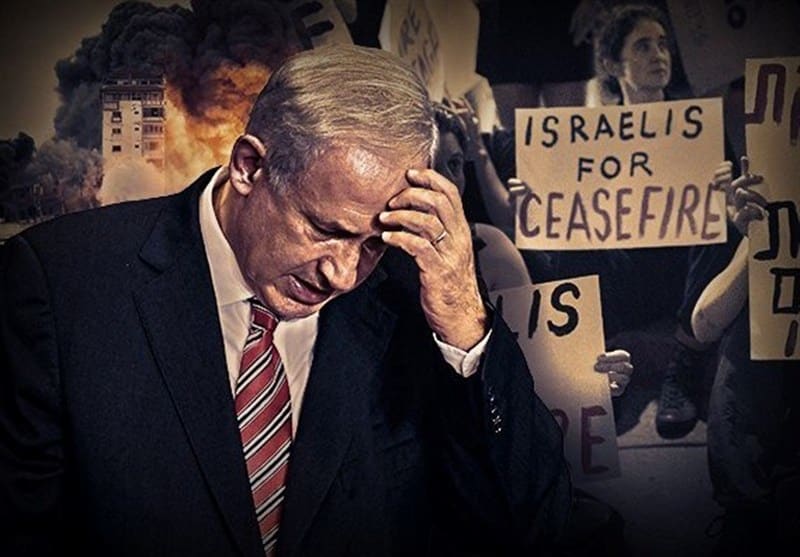From Gaza 2005 to Gaza 2025: Sharon’s defeat scenario awaits Netanyahu.
After several months of the Gaza war and the various plans that Israeli Prime Minister Benjamin Netanyahu has put forward to prolong the war and now completely occupy Gaza, many Hebrew circles are warning Netanyahu about repeating the fate of former Israeli Prime Minister Ariel Sharon, who was forced to accept defeat in the Gaza Strip and withdraw from the Strip in 2005.
In recent days, Netanyahu has announced his plan for the complete occupation of the Gaza Strip, which has received many domestic and foreign reactions. Netanyahu has claimed that the aim of this plan is to return Israeli prisoners, dead or alive, end Hamas rule by taking temporary military control over the entire Gaza Strip, and then establish a civilian government in the Strip that is not affiliated with Hamas or the Palestinian Authority.
However, there is an undeniable comparison between this plan and what Ariel Sharon did in Gaza in 2005. Sharon was one of the most famous political and military leaders of the Zionist regime, but he had to admit that the direct occupation of the Gaza Strip was very costly on all political, human, and economic levels.
Sharon had realized that the occupation of the Gaza Strip by Israel since June 1967 had not had any long-term strategic gains for the regime. But today, after 20 years, Netanyahu seems to be moving in the opposite direction to Sharon; but his end may be similar, or even much more bitter than Ariel Sharon’s.
Why was Sharon forced to withdraw from Gaza?
When Ariel Sharon decided to withdraw from Gaza in 2005, it was not simply a fleeting tactical decision; Rather, it was the result of a comprehensive examination of the realities on the ground and the pressures, and at that time, Sharon realized several things:
-Human cost: The presence of the Israeli army in Gaza claimed the lives of Zionist soldiers in Gaza almost every day in operations by Palestinian resistance fighters and caused significant losses to this army.
-Economic cost: Protecting the settlements inside Gaza required huge expenses that the Zionist regime could not afford, especially at the same time as the war was continuing in this strip.
-International isolation: The direct occupation of Gaza would increase Israel’s international isolation and would provoke unprecedented criticism in international forums against this regime.
-Strategic feasibility: The occupation of Gaza not only did not lead to the elimination of threats against Israel, but also increased security threats against this regime and increased Palestinian motivation for resistance.

